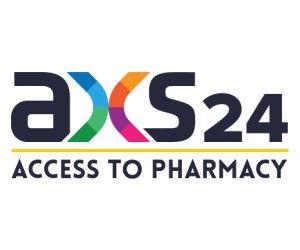
- Drug Topics June 2024
- Volume 168
- Issue 05
Q&A: Navigating the Exponential Growth of Specialty Drugs

The specialty drug market has exploded in the last few decades.
Natalie Bedford, Senior Vice President, US Pharmaceutical Distribution Services at McKesson, sat down with Drug Topics at AXS24, the Asembia Specialty Pharmacy Summit, to discuss the growth of the specialty drug market and the ways McKesson is helping manufacturing partners navigate regulatory changes.
Drug Topics: What are some medications that have seen the most growth recently?
Natalie Bedford: That's a fun question. Let me take a walk [through] history. When you look back at the specialty market—when you look at 1990—there were maybe about 10 specialty drugs on the market. Fast forward to 2008, roughly 200 [drugs], 2015, another 100 come to market, [so] about 300 [total]. And then you fast forward to today, there's been an exponential growth—an explosion—of specialty drugs.
The largest growth has been in oncology, and it will continue to be, for 2 reasons: One, because of existing products in the market that will continue to get additional indications to treat unmet needs, and also pipeline products that are coming to market to treat where there is no medication, or there is truly an unmet need.
Neurology is also another drug class, and that's because of the growing need to treat both multiple sclerosis and schizophrenia, and all of the new modalities that are coming to market. Lastly, between cell and gene therapy [and] other new modalities, precision medicine is truly driving the new need for new medicines to treat all of these rare and orphan [diseases], showing why there's such a dire need for these specialty drugs for patients.
Are there any recent or anticipated regulatory changes that have impacted or are likely to impact distribution?
Surely. All kidding aside, the distribution channel is extremely sensitive to both upstream and downstream pressures caused by policy pricing changes. We're always being informed of, and paying close attention to, whether they are new or potential policy changes that could impact our upstream and downstream customers.
For that reason, we have built within our organization a policy team that very much pays close attention to these impacts. We partner with our manufacturer partners early, before the policy even comes to market, to understand what the impacts may be them, what the concerns are for their downstream customers, [and] what are ultimately, the concerns that they have for their patients, so we can try to work together to have a solution together and help minimize those impacts.
AXS24, the Asembia Specialty Pharmacy Summit, was held April 28 to May 2 in Las Vegas, Nevada.
Articles in this issue
over 1 year ago
Diabetes and the Skin: Complications and Prevention Tipsover 1 year ago
Pharmacy in the Digital Ageover 1 year ago
Redefining Pharmacy Education for LGBTQ Pain Managementover 1 year ago
Q&A: How The 2024 Election Looms Large Over Pharmacyalmost 2 years ago
Asembia: Pharmacists Have a Role in Health Care System Sustainabilityalmost 2 years ago
Q&A: Understanding Future Impacts of the IRANewsletter
Pharmacy practice is always changing. Stay ahead of the curve with the Drug Topics newsletter and get the latest drug information, industry trends, and patient care tips.























